As an avid hiker, you daydream about the beautiful views, fresh air, and time to commune with nature you can only get on the trail. You plan every detail of your next adventure, down to the protein bar you’ll be eating mid-trek. But have you thought about preventing trekking injuries?
Trekking is generally pretty safe, but accidents happen. While most common injuries would be a mere annoyance at home or in town, they can pose big problems when you’re on the trail.
Fortunately, you don’t have to invest in state-of-the-art equipment. A little knowledge and preparation are all you need to prevent trekking injuries.
We’ve spent thousands of hours in the mountains and seen dozens of trekking injuries. Here are a few of the most common trekking injuries, and how to prevent them.
Common trekking injuries & how can they be prevented?
Introduction to trekking injuries:
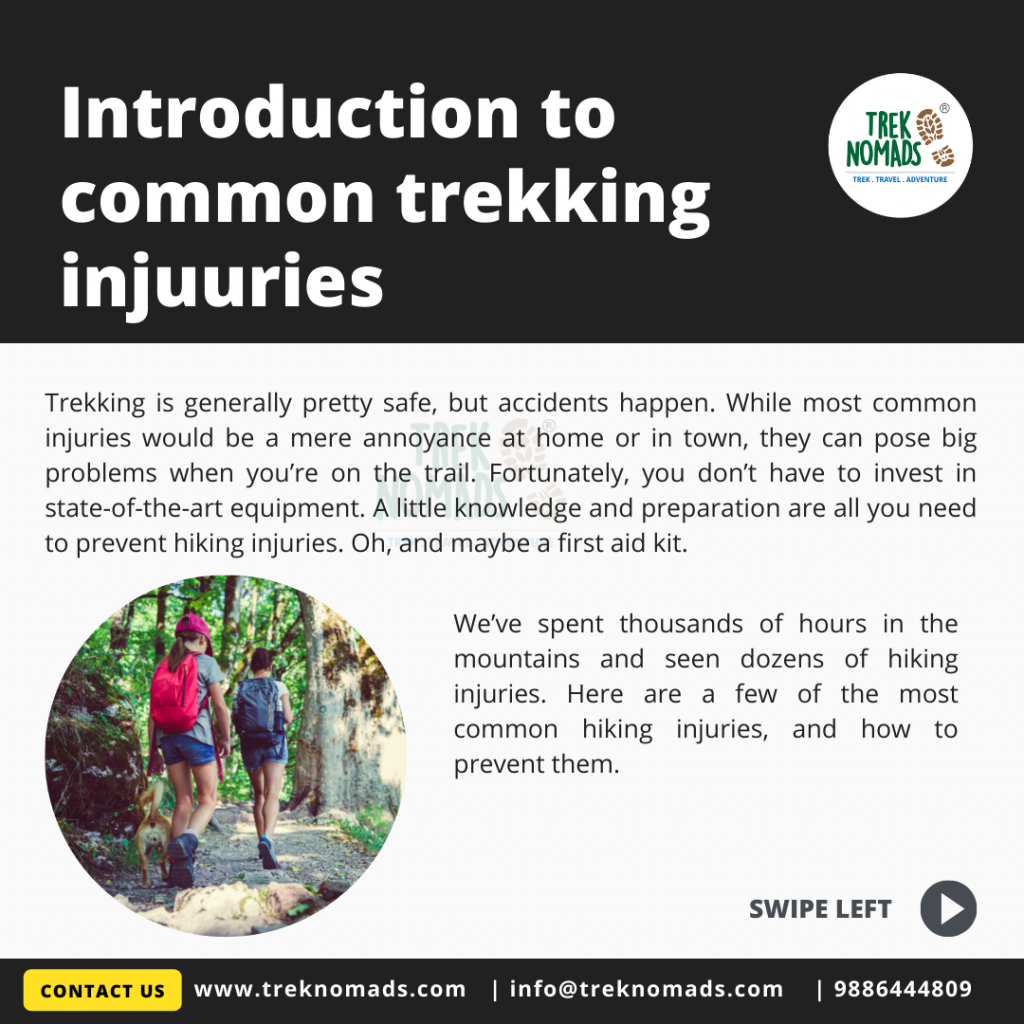
Blisters:

Sprains:
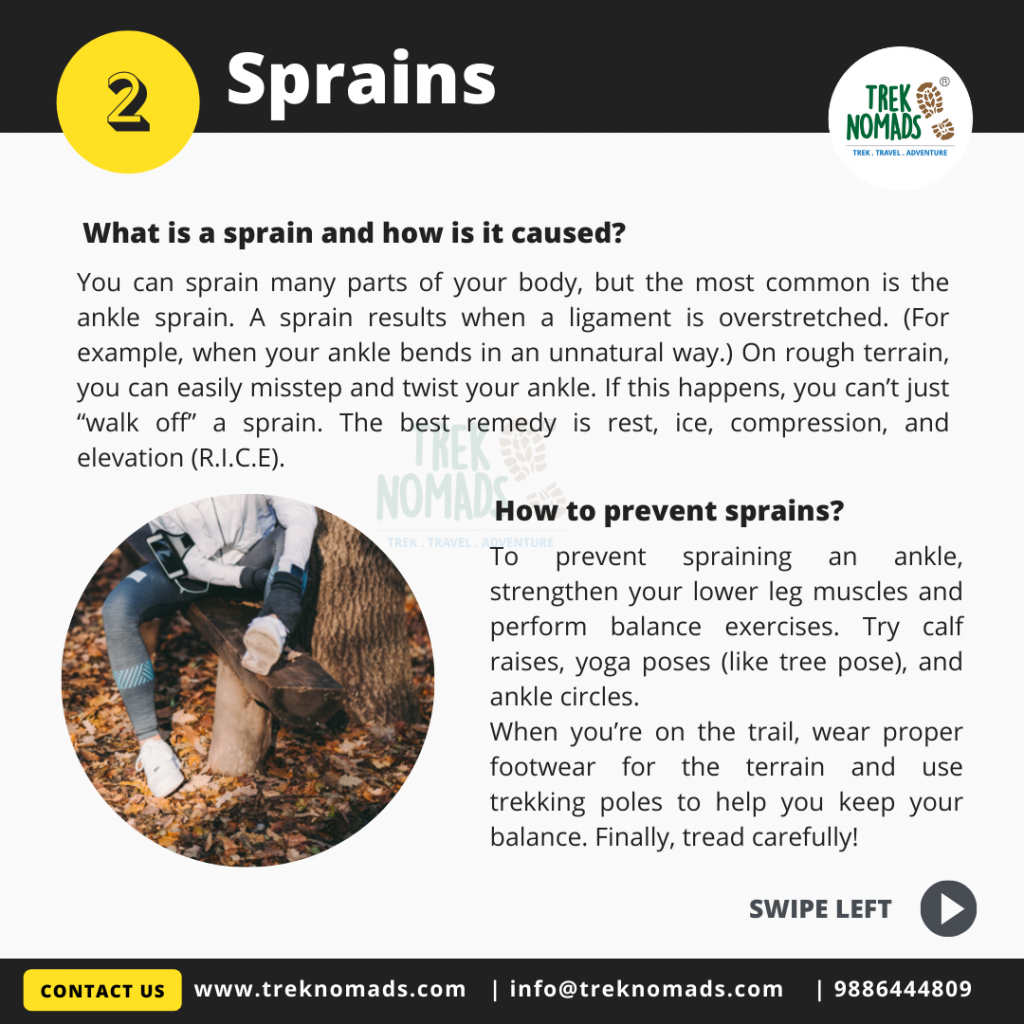
Sunburn:

Hypothermia:
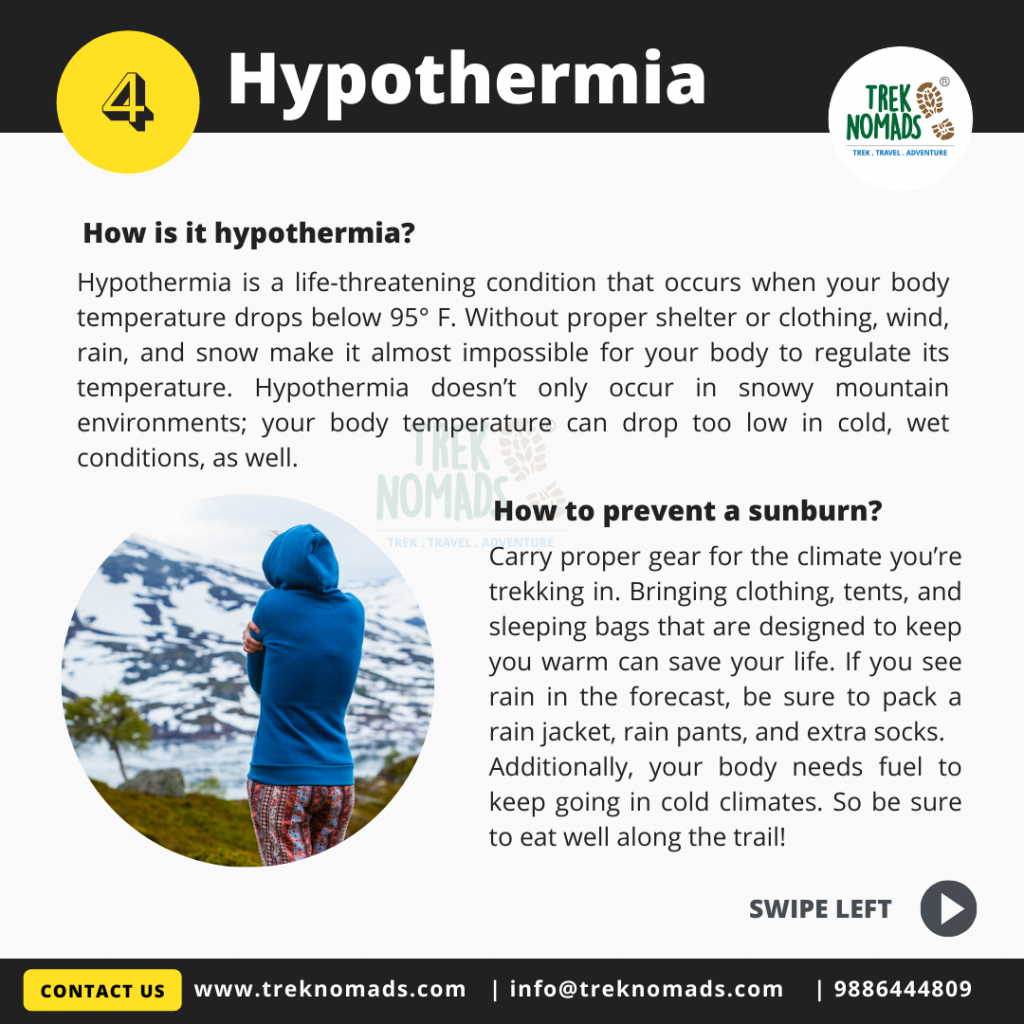
Heat Stroke:
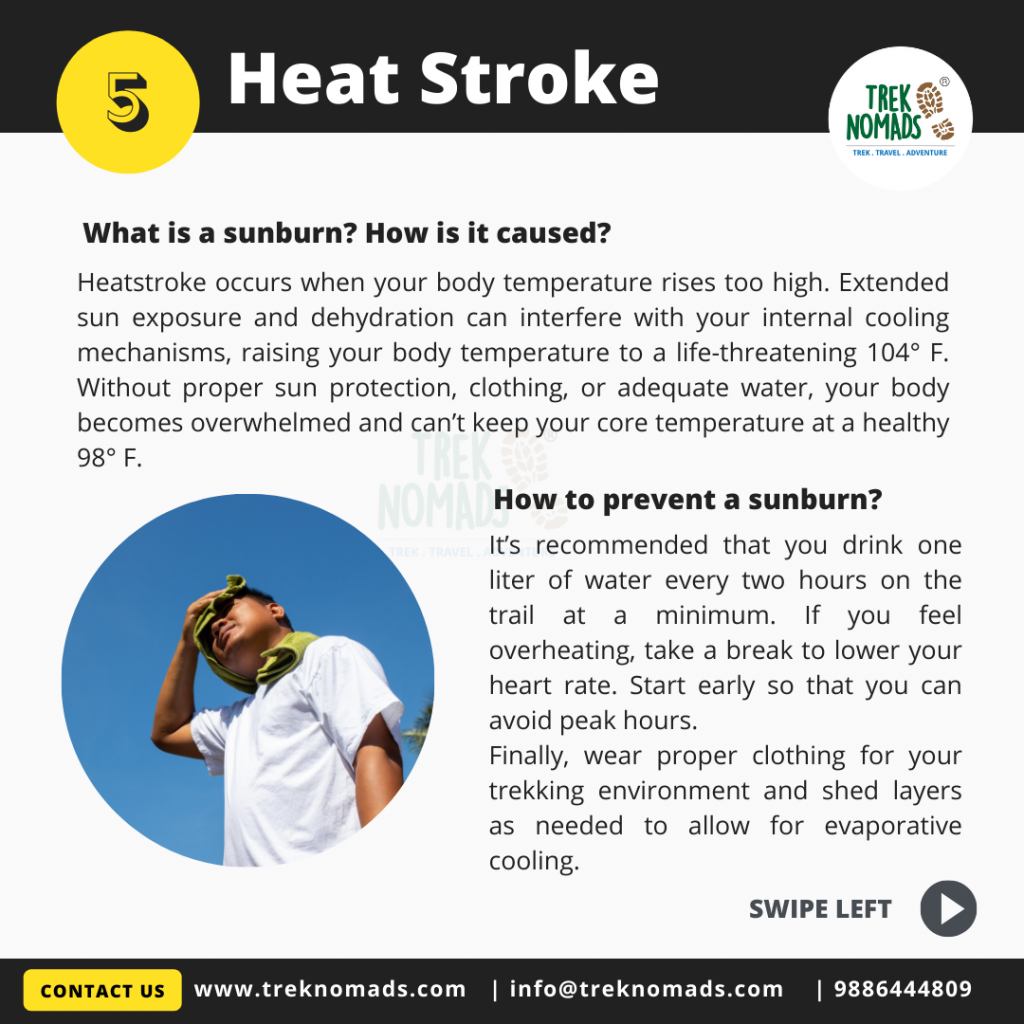
Lastly, Exhaustion:
A little exhaustion should be part of your experience while trekking, it means that you are pushing yourself into new territories and will offer perhaps some of the best sleep you’ll ever experience at the end of the day. But take exhaustion too far out in the wild and you could find yourself in a tough situation.
A common cause of exhaustion is dehydration and improper nutrition. Make no mistake about it, when traveling on the trail you are burning a lot of calories and your machine of a body needs a lot of fuel. Bring calorie-dense (and light) food with you on the trail, and plan your water sources before you go out; if all else fails, just shorten your intended mileage or take a break and extend the duration of your trip.
Recommended Reading: Skincare tips for longer Himalayan treks
Conclusion:
With a little knowledge and planning, you don’t need to let a trekking injury spoil your trek. Even better? Let an experienced guide help you on a one-day trek, a weekend trek, or a multi-day Himalayan trek! Guides have seen it all and will tell you if you are about to make a mistake. And when mistakes do happen guides have the first aid training to treat your injury and keep you safe in the mountains!
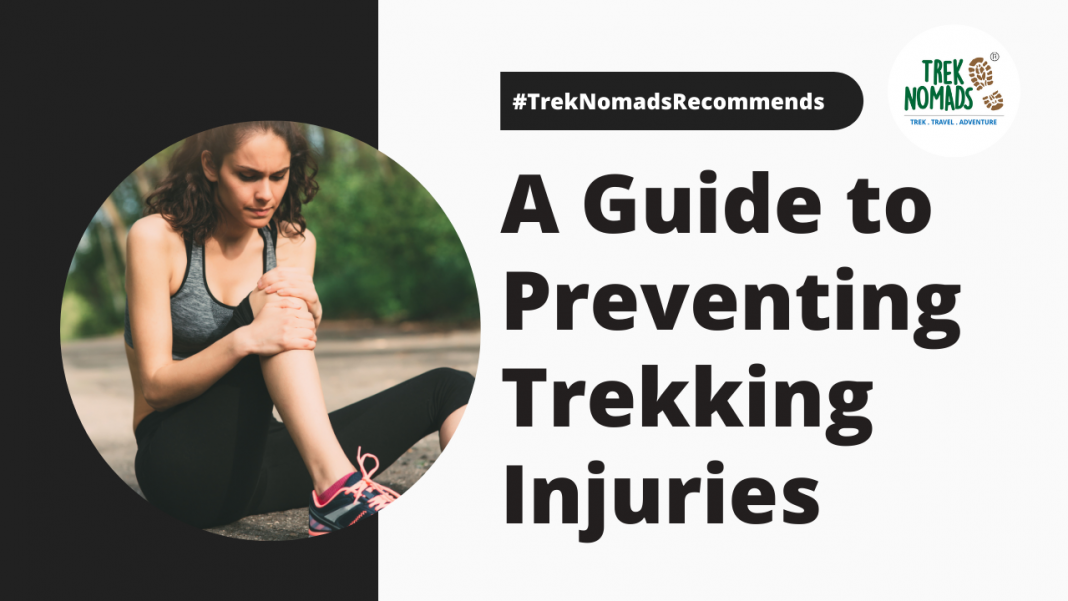
My husband and I are planning to set out trekking in the next two weeks…this is just so timely to read.